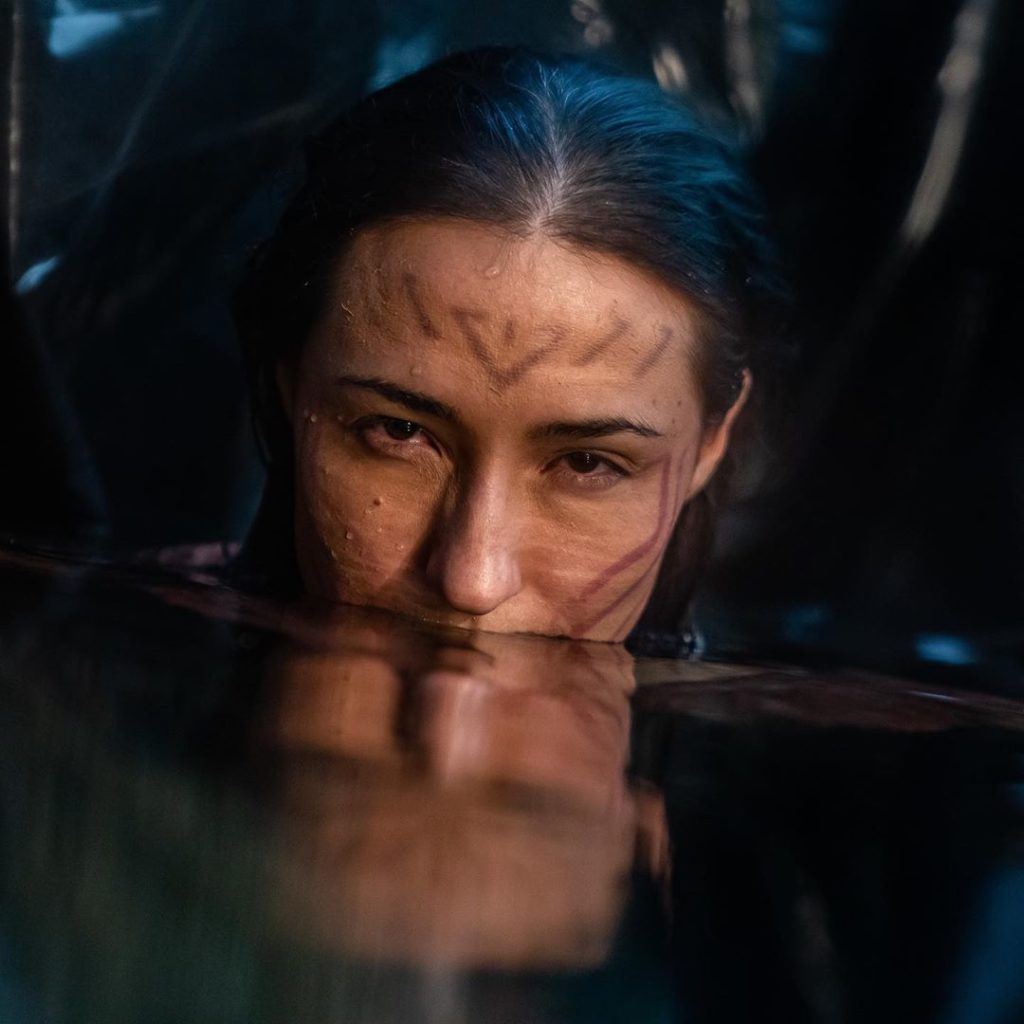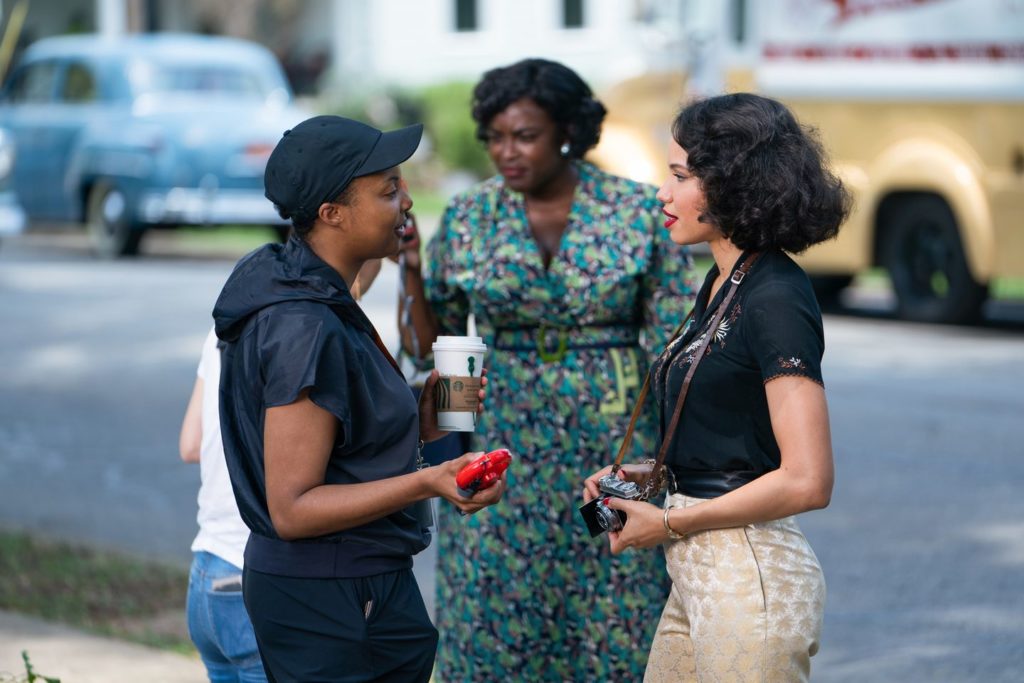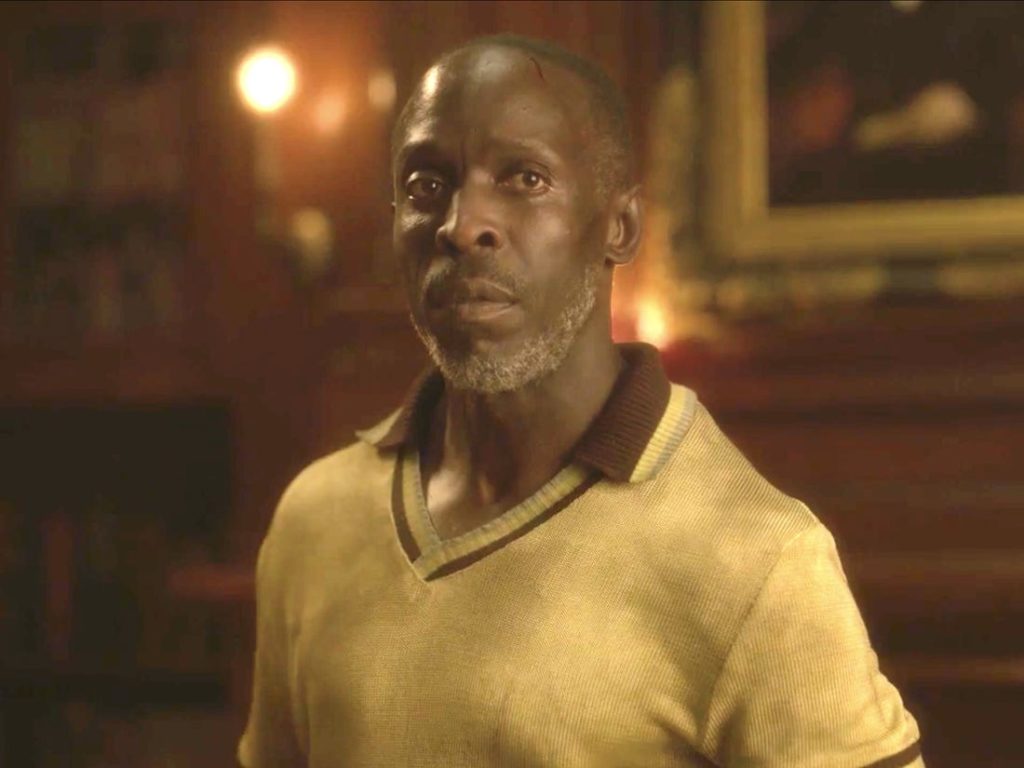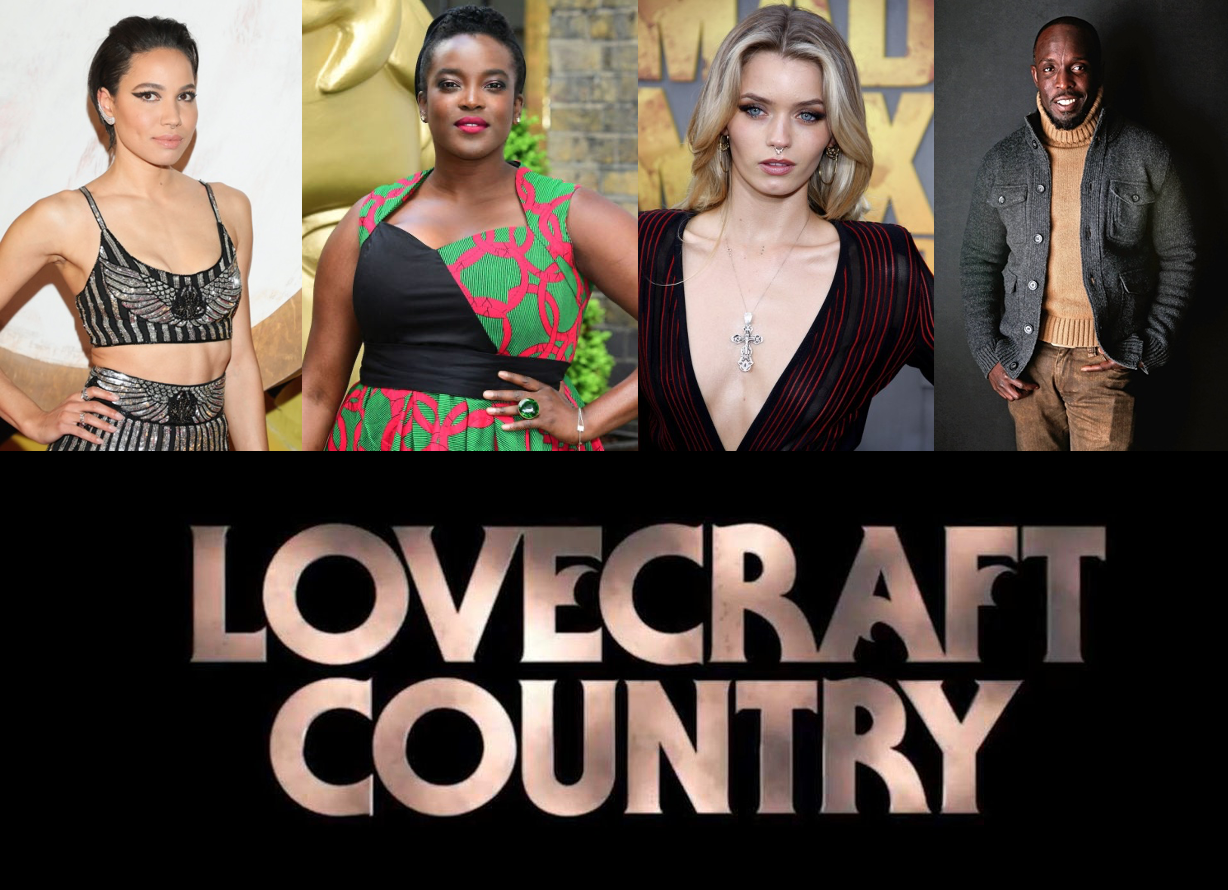We’re halfway there y’all, 5 episodes down 5 more to go. By now you are coming down from the first episode high and putting your more critical glasses on when watching each episode. Lovecraft Country is not perfect. It has holes and some real side eye moments which I mentioned in the previous review. Some things don’t add up, some things may have made you mad, and some may have turned you off completely. Maybe you have been able to look past those things with the faith that the good outweigh the bad. And having a Black sci-fi story is still giving you life no matter the mess.
Before we go forward SPOILER ALERT!! If you have not watched the first 5 episodes, I suggest coming back to this article once you have.
Okay – its true, there are moments that really rub one the wrong way. The loss of Courtney B. Vance’s character Uncle George, watching sister hate on a Black woman from a Black woman – as a white woman!…not a fun feeling for the culture. Then the moment that breaks your heart, Arawak character, Yahima Maraokoti being revealed and misgendered and then killed by a black man. UGH! I equal parts had my head in my hands for the greatness of being able to see black characters in Indiana Jones style adventures and sorrow for the introduction of indigenous “two spirit” existence not being fully grounded and ill executed. The idea of indigenous people holding the key to this ancient language is paramount, BUT the concept was introduced WAY too loosely and not carried out with enough thought or care. Also, I literally was unbelievably excited to have Yahima continue with us in this story. I keep telling myself, maybe they’ll be back. It’s a show full of magic and mystery, maybe Yahima can’t die! Fingers crossed…

There are other moments that we can linger on or really delve deep into, from logistical plot point issues, down to the pace leaving us confused and trying to keep up. There’s no justifying the lack of depth these misgivings have laid out. Some viewers may not be able to continue, which is understandable. As Black creators, I hope we have made it to a level where we can make stories that miss the mark and hit in other ways and still have opportunity to grow, just as white creators have been doing for years. So, I’m along for the ride with hard side eye on deck for sure. There is one thing I know to be true, the performances do not cease to amaze. From Michael K. Williams guttural portrayal of the duality of Black life for Black men to Jurnee Smollett calling upon the wronged spirits raising the hairs on my neck, I have been floored. Wunmi Mosaku and Abbey Lee as Ruby and Catherine give a captivating performance of an ancient and new conversation we’ve all been trying to have with white women for decades. I had the utmost pleasure of interviewing these fantastic actors on their experiences bringing these conversations and layers to life.
Jurnee Smollett, Letitia “Leti” Lewis
Black Nerd Problems: One of my favorite scenes was you smashing out the windows and that whole you know element but also the idea that your character goes in these ups and downs big and small, and I want to know how did you find that balance and what was really important for you to convey as an actor as Leti.

Jurnee Smollett: Just to tell the truth, I mean it’s that simple. I don’t really think of it in terms of big or small you know. If I am approaching a scene in which I am filled with so much rage, you know that’s the blood memory, that visceral ancestral connection to the oppression of my people. There’s an F-ing cross on my lawn right now – ok. There was a dead fish on my lawn – but there’s a cross on my lawn so the rage on a molecular level vibrates through my body. That’s the truth that I have to access right. The moment in which – if I’ve disappointed my sister and I desperately just want her to see me for my new self. I’ve tried to shed my old self – please I’m begging you, just see me as the new Leti, see I’m not a F**k up anymore. You know, and then something slips and oh, this is only reinforcing the narrative she already has of me. What does that do when you disappoint someone that you want their approval from.
“You’re just doing the action. What’s your target, what’s the truth in this moment? And that’s how as an artist you stay grounded in the big or the small,… you just tell the truth.” – Smollett
It’s just finding the truth, right? When Meisner talks about the foundation of acting is the reality of doing, you’re just doing the action. What’s your target, what’s the truth in this moment? And that’s how as an artist you stay grounded in the big or the small, you know you just tell the truth. And that’s what I love about Misha’s writing. Even though this is this big genre piece its centering black voices in such a radical way but really at its heart it’s a family drama, you know – it is. I see my family in this, I think people will see their family in this show as well, you know. The desire to protect your family, the desire to seek out your family, the estranged relationships in family, the secrets held in family, the joy – the radical joy that we are in pursuit of with our family. For that reason, it’s quite exciting to be a part of a show like this.
Wunmi Mosaku, Ruby & Abbey Lee, Catherine Braithwaite
Black Nerd Problems: So this question is for the both of you, there is a conversation currently in the world and ongoing and in Lovecraft Country between women of color and white women and you know you two work together often (at least in the 5 episodes I’ve seen). And that scene where you both are sitting on a bench and Abbey or Christina is kind of saying, yes I understand and Ruby cuts her off. What was it like working with each other and having that very relevant conversation as your characters and kind of as yourselves as well?
Wunmi Mosaku: For me, it was very exposing and kind of sharing my experiences with Abbey, you build a level of trust with the people that you are working with. Especially Abbey and I because I had to be so vulnerable with her, I just had to be so honest. It was quite a vulnerable place to be but in a way it’s quite liberating to be able to just say – this is how I feel when I am around this person, this is how this person treats me, you know like holding each other accountable as well. You know I feel like we became super close because of that, because we didn’t hide anything. And it was scary to do it, I’ve never done that before. I’ve never done that with my close white friends. Just not. I don’t talk about race with people who aren’t Black, you know. I just don’t. I just have never done that before. And it was liberating to be able to do it with Abbey and quite cathartic.
“It was so rich and dense with just a deeper understanding of self of world of craft”– Lee

Abbey Lee: I mean for me like, what a blessing to be given this sort of opportunity that this show had and the relationship that I had with Wunmi to be in a creative space. Which is in a way is a safer space that’s the beauty about being – doing art about being in a creative space is that like the rules are a little different. Like if you really wanna get deep, if you really want to be deep and real then you have to break the boundaries that society or politics or whatever has put on us. You have to break those walls and take the risk to be super intimate with each other. And I am so grateful that I had someone like Wumni who was willing to do that. And I can’t stress enough that she really was very vulnerable with me. And we built a relationship that was – it meant that that creative space that we built was happening off set, you know when I would have dinner with Wumni she was more open with me. And I know she was telling me things she was probably not telling other white women and like so, it was a necessary tool for us to work, but it was also just a blessing because I now got to hear and see first-hand someone telling me these things not just something that I read or see externally it was with me.
“It was emotional, and it was tough but it was so necessary. But I don’t feel like there have been many safe spaces in the world for me, and I feel like I have one…” – Mosaku
WM: And I think to say more about the safe space, it really doesn’t feel like there are many safe spaces in the world for Black women and to create that on set, is genuinely quite difficult because there aren’t generally a lot of Black women around on a set and having that with…creating that with Abbey was – it was emotional, and it was tough but it was so necessary. But I don’t feel like there have been many safe spaces in the world for me, and I feel like I have one with Abbey now, which is great.
BNP: Thank you so much that was so beautiful so amazing to hear that experience .
AL: Thank you for the question.
Michael K. Williams, Montrose Freeman
Black Nerd Problems: I wanted to talk about Montrose and this duality that lives between Montrose and the duality that lives in Black men in general, and what that was like for you to bring. What personal things did you bring to the Montrose character to convey?
Michael K. Williams: The main thing I brought to, personally, that I brought to the Montrose experience, well portraying Montrose was the trauma. You know the generational curses that are passed down on my family and the trauma of just being a Black man in America. There were times when we would do scenes, and I would just feel like this is a little too much. Like there is something that is awakening in me, and I don’t really understand it. I know now that it’s the trauma that’s in my DNA. You know from when my ancestors walked this earth during Jim Crow, that’s in me, and Lovecraft woke that up.
I didn’t realize it then, but I get it now. In light of where we’re at as a nation, as a world, as a human race I should say. And there would be moments I would look across the set, and we didn’t have to say a word but I would look at Journee and Jonathan, and I would know that they were going through the exact same thing that I was going through. It would just be a look on the way to the bathroom. We didn’t have to say a word, we just knew, and we just nodded at each other cuz we all felt it.
BNP: I wanted to ask a question kind of about queerness. You know you’ve played characters in the past with The Wire and also now that have had this queer background. What was it like for you to embody that or to bring that into a character?

MKW: You know it’s always interesting to introduce sexuality into Black male storytelling, because we don’t get to do that. We don’t get to explore our sexuality or our vulnerability on film. You know we’re told that Black men are to look and act and sound and behave one way. You know the reason why I love exploring these characters and queerness, or sexuality as I call it, with my characters is because the opportunities I have been given to explore these storylines…they have not been stereotypical.
A lot of time you see a sort of dress or very feminine, not saying that’s not real either, but that’s not all there is to the black experience when it pertains to sexuality or to queer sexuality amongst the Black community. So to have someone like Omar to play, to have that opportunity for someone like me to portray him, was empowering you know–due to the fact that I was the soft one growing up. I was the one that got called “sissy,” I was the one that would cry if you hit [me] or you called me too many names, like I was sensitive you know.
“…as two men discussing sexuality and masculinity and relationships, we don’t get a chance to just take off the mask and just be free and discuss that as men.” – Williams
What I got picked on for as a kid, ironically, I get paid for today, to be sensitive and vulnerable to not be afraid of being vulnerable. So, I applaud that, and that’s the same way I approached Montrose. It wasn’t about gay or straight, cuz its not with him, you know he had a wife he had a son. It’s about what Black masculinity versus sexuality looks like. And I say masculinity with you know…redefining what it means to be a man, you know what does that really [mean], you know the stereotypes that we play on in the community, so I approach Montrose with the opportunity to explore those, and we get that. You know, there’s a scene between Tic and Montrose when they’re discussing, they’re talking for the first time like man to man about the past. They’re sitting on the curb in Chicago, and it’s a beautiful conversation between father and son but also as two men discussing sexuality and masculinity and relationships…we don’t get a chance to just take of the mask and just be free and discuss that as men.
Who knows where the show will go from here. The trailer had so much more in it, and I am hoping it takes us to those places we wanted to go. If you are hanging in there for the second half of the season, keep watching Sundays on HBO and HBOMax @9pmEST.
Check out our other interview with other star cast members from Lovecraft Country here.
Photo Credits for Photos in Cover image Collage: (L-R):
Jurnee Smollett (Courtesy of IMDB)
Wunmi Mosaku (Courtesy of Essence)
Abbey Lee (Courtesy of PRPhotos.com photographer: David Gabber)
Michael K Williams (Courtesy of The Guardian)
Want to get Black Nerd Problems updates sent directly to you? Sign up here!
Follow us on Twitter, Facebook and Instagram!



Show Comments